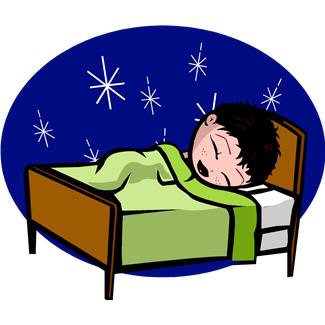http://www.washingtonpost.com/wp-dyn/content/article/2007/12/14/AR2007121402015.html
Tuesday, December 18, 2007; Page HE07
Worried about overindulging this holiday season? Give yourself a special gift: sleep.
Despite the temptation to have too much of everything during this hectic season, a growing number of studies now point to the ill effects of missing even just a few hours of sleep — from increased appetite and obesity to a greater risk of high blood pressure and diabetes.
So many people could benefit from more sleep,” says James Gangwisch, a Columbia University researcher and lead author of a new study on the health effects of missed sleep. “A lot of people don”t even realize that they are sleep-deprived.”
Just look at the numbers: In 1910, Americans, who didn”t have television, computers and video games to distract them at night, slept an average of nine hours per night,according to a new report in the journal Sleep. Nearly a century later, adults average seven hours of sleep nightly, according to a 2003 survey by the National Sleep Foundation. About a third of adults get six hours or less per night, according to the National Health and Nutrition Examination Survey (NHANES), a large, federally funded project.
That”s short of the seven to nine hours nightly most of us need.
The effects go far beyond feeling tired and cranky. Skipping sleep fuels appetite, particularly for the kind of comfort food that is high in calories. Small wonder, then, that sleep deprivation is emerging as a key risk factor for obesity and Type 2 diabetes.
In fact, when Gangwisch and his colleagues analyzed the NHANES records of nearly 9,000 adults, ages 32 to 86, they found that short sleepers — that is, those who sleep five hours or less per night — were nearly twice as likely to develop Type 2 diabetes as those who slept seven or more hours nightly. Results are published in the December issue of the journal Sleep.
Other research, also by Gangwisch, suggests that short sleepers are twice as likely to be obese as people who get enough sleep nightly.
With that knowledge, welcome to the seventh annual Lean Plate Club Holiday Challenge. This marks Week Five of the challenge, which is not about dieting but rather about helping you maintain your weight from Thanksgiving to New Year”s Day. It”s never too late to join the challenge. Just keep the numbers on the bathroom scale steady from now until 2008 begins.
It”s easy to make sleep a low priority during the year, and even easier at the holidays, when schedules get stretched to the limit by parties, shopping, cooking, travel and the more mundane end-of-year activities, from submitting health insurance reports to filling out expense-account claims.
Yet just an hour less sleep per night can wreak havoc, as a 2000 study by University of Chicago researchers shows. Eve Van Cauter and her colleagues deprived healthy young adults of just an hour a night of sleep. In six days, their hunger increased and blood-sugar levels soared, putting them in a pre-diabetic state that resembled that of people decades older. The effects were reversed with a return to normal sleep.
Other studies show that missing sleep cuts leptin levels, a hormone that controls satiety and signals the brain that more food is not needed. “When leptin levels are low,” Van Cauter says, “it tells the brain that we need more calories, and hunger is stimulated.” That”s why skipping sleep “is highly likely to promote hunger and overeating,” she says.
If you can”t manage to fit in more sleep, at least try to be a little more physically active. Here”s why: Exercise reduces the effects of sleep deprivation on insulin resistance — a key step toward developing Type 2 diabetes. Being more active also helps improve sleep quality.
That”s why this week”s Holiday Challenge activity goal is to get 30 minutes of activity daily. You can do that by taking six walks of five minutes each or three 10-minute walks. Or you can do it all at once. Whatever works for you.
This week”s food goal is to swap good fats for bad. So choose foods with healthy mono-unsaturated and polyunsaturated oil, such as olive, canola and safflower oils; as well as omega-3 fatty acids found in avocados, fish, healthy margarine and nuts, and stearic acid, found in dark chocolate. Find a full list of goals, tips and tools to help with your efforts at http://www.leanplateclub.com/holidaychallenge.
At this busy time of the year, naps may also help, although the research is less clear on their benefits. If you do nap, try to get some winks at about 3 p.m., a time that Gangwisch says appears to be the optimum time for the body.
As he notes, getting enough sleep “gives more energy, makes you more creative and helps you feel better. If we put sleep higher on our priority list, we can have more energy to devote to the things that are important in our lives.”





